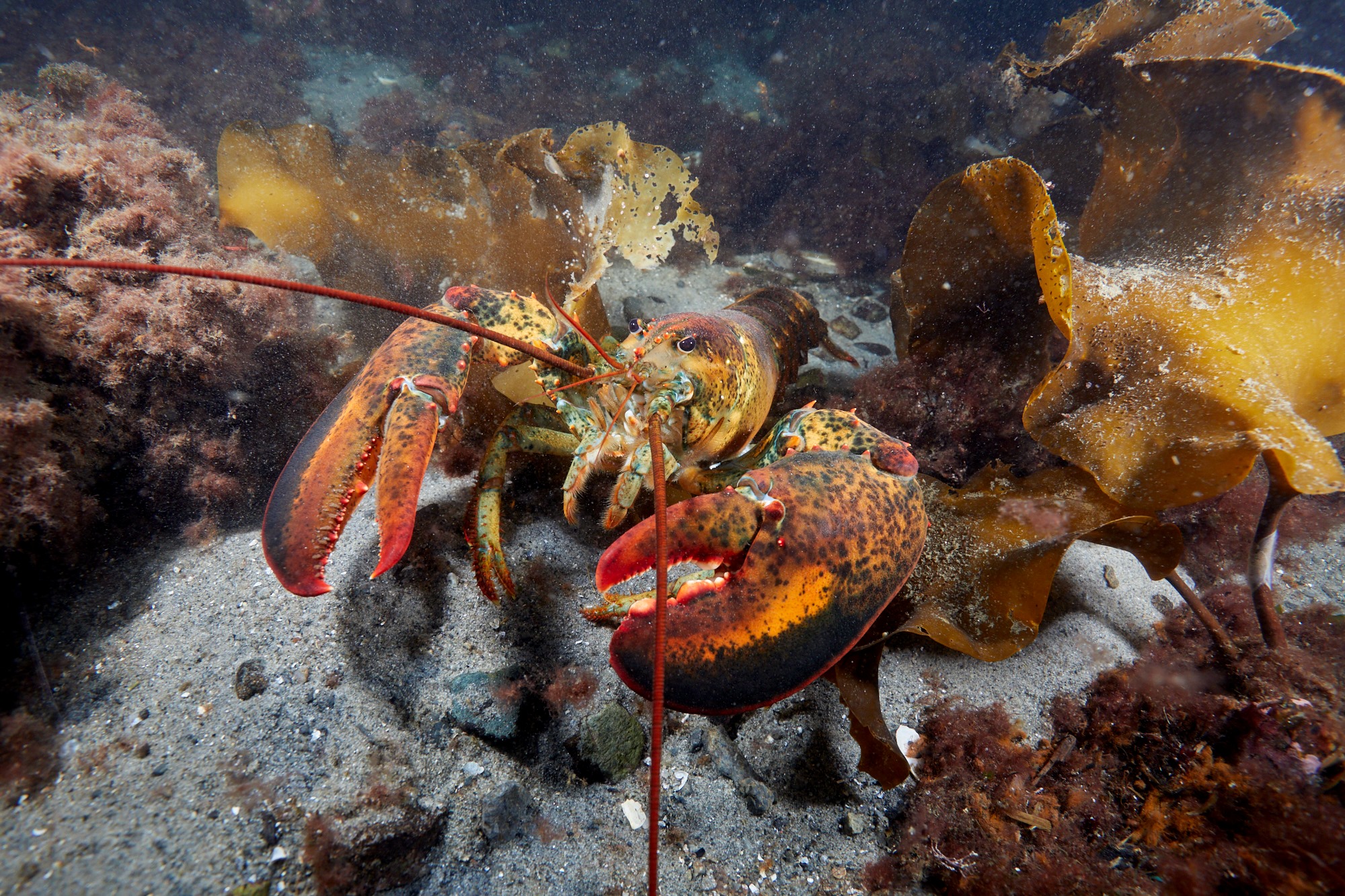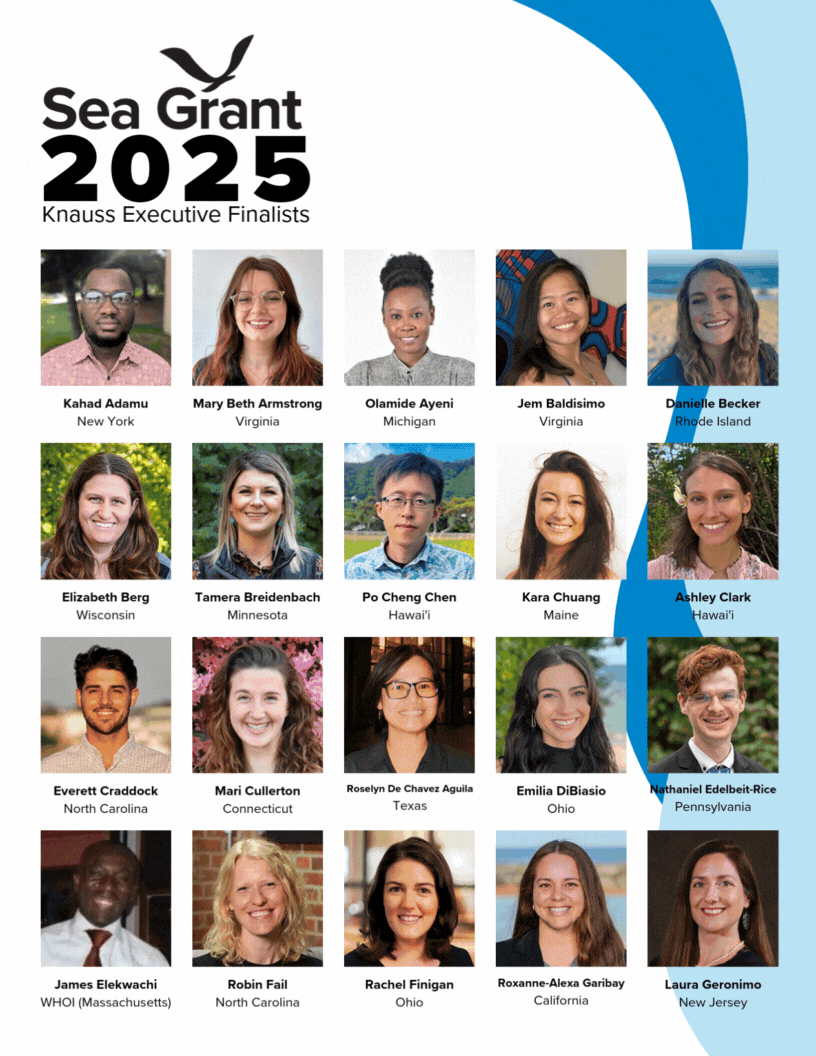By: Anne Gore, Alaska Sea Grant
Increasing diversity, equity and inclusion in coastal and marine science, education, policy and decision-making is an important priority for Alaska Sea Grant. One way we are advancing this priority is through the Community Engaged Internship program (CEI), a 10-week paid summer internship for undergraduate students from underrepresented and Indigenous communities. The program provides training and mentorship as part of a local research, outreach or public engagement project.
This summer, Alaska Sea Grant selected and matched four interns with organizations and projects across the state. In addition to being mentored by their local hosts, the interns are part of a national cohort, which meets online for professional development and networking. Each intern is also mentored by one or more graduate students participating in a Sea Grant Knauss Fellowship in Washington D.C.
Cairone Reft is a CEI intern who has been working with Kodiak Marine Advisory Program agent Julie Matweyou. A Kodiak resident, Reft is a member of the Alutiiq Tribe of Old Harbor and is studying marine biology at Nova Southeastern University in Florida.
Alaska Sea Grant spoke with Reft and Matweyou to learn more about the CEI internship experience.
Q: What is the focus of the internship?
Julie Matweyou: Cairone’s internship is providing her with a broad overview of research on forecasting harmful algal blooms. She is gaining exposure to marine science professionals through participating in field sampling. Cairone collected, processed and prepared plankton samples for later analysis to detect the presence of Alexandrium species, the phytoplankton that produces paralytic shellfish toxins. She also assisted NOAA scientist Dr. Steve Kibler to collect small forage fish and invertebrates to understand how toxins from phytoplankton may accumulate in species higher in the food chain, such as marine mammals and salmon.
Q: What have you enjoyed most about your internship?
Cairone Reft: I have thoroughly enjoyed all of the different experiences and opportunities in my internship. One of the best things about this internship was getting to meet and connect with so many different people in the marine science world. I enjoyed having the opportunity to work with and learn from so many knowledgeable people. It was interesting and eye-opening to see the different marine career paths that exist. You don’t really get to make these kinds of connections when you’re sitting in college lectures, so this is something that I really appreciated.
Q: I understand you have been connected with a Knauss Fellow mentor. Has it been helpful to have a peer mentor?
CR: I have had the opportunity to connect with two Knauss Fellow mentors so far, and we are planning to meet again in August before the internship wraps up. I enjoyed getting to hear about their career journeys in the marine science world and how they got to where they are now. I think it is extremely beneficial to have a mentor, because it can be very difficult to navigate college and professional career development on your own. Both of my Knauss Fellow mentors gave me useful tips about finding my career path.
Q: Has this internship sparked any new interests or changed your mind about what you think you might like to do as a career?
CR: This internship really helped open my mind and broaden my areas of interest in marine science. When I first started my internship, I was primarily interested in fisheries management and conservation, and I never gave much thought to anything else. As a result of this internship, I have had the opportunity to explore other focus areas, such as harmful algal blooms and marine invasive species, allowing me to gain an appreciation for these topics, as well as sparking new interests.
Q: Would you recommend this internship to others?
CR: I would definitely recommend this internship to other undergraduate students. The Community Engaged Internship program has given me unique opportunities to grow professionally as a student pursuing a career in marine biology. I have learned a variety of new skills through working with Alaska Sea Grant that I know will benefit me as I navigate my way throughout the remainder of my undergraduate work, as well as my future career path.
JM: It has been great working with Cairone and I look forward to offering this opportunity to students in the future. The internship exposes students to fields that they might not otherwise have considered and provides an opportunity to work on issues relevant to their own communities. I hope more students like Cairone take advantage of this internship, which helps students explore the marine-related career opportunities that exist in their own communities.


